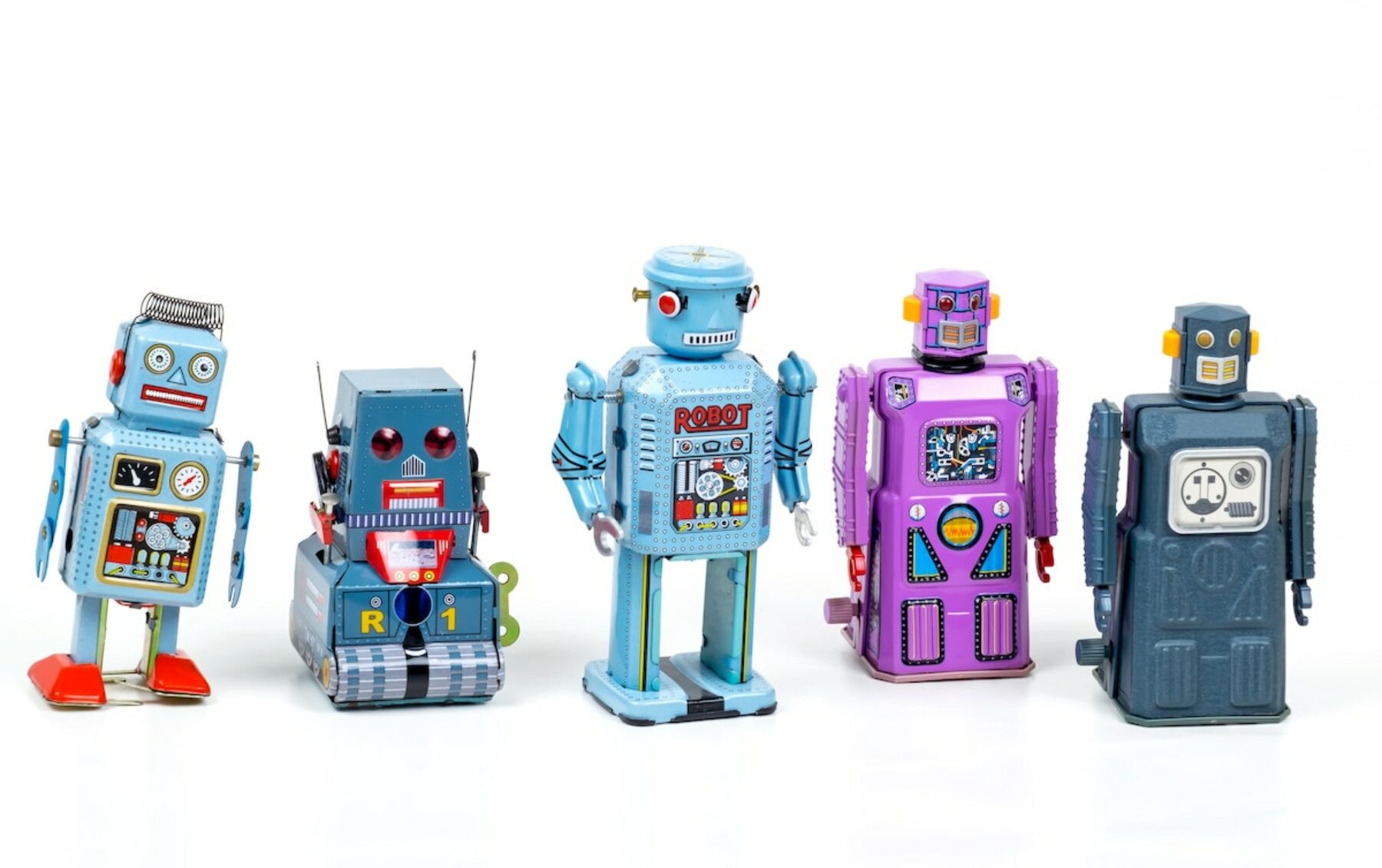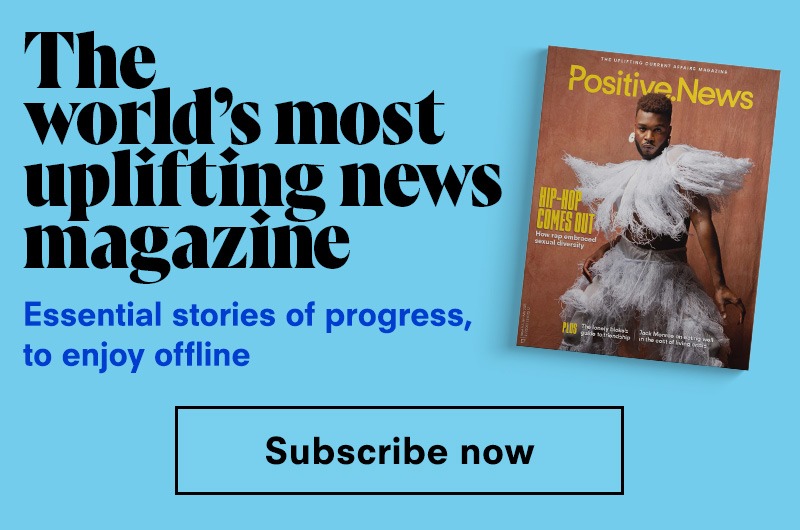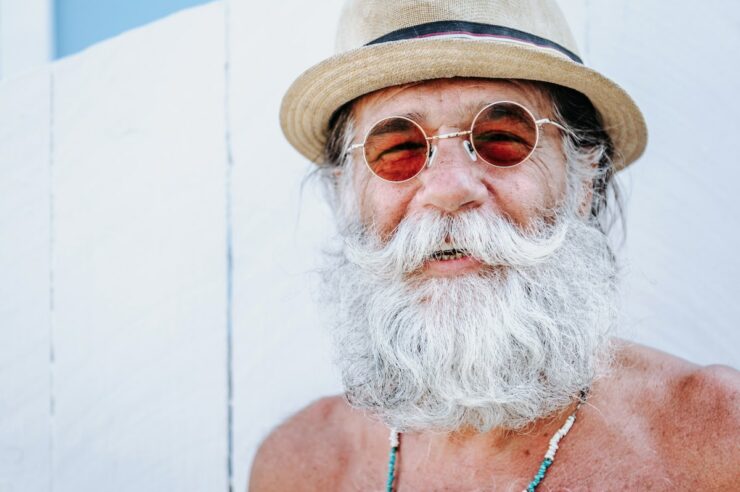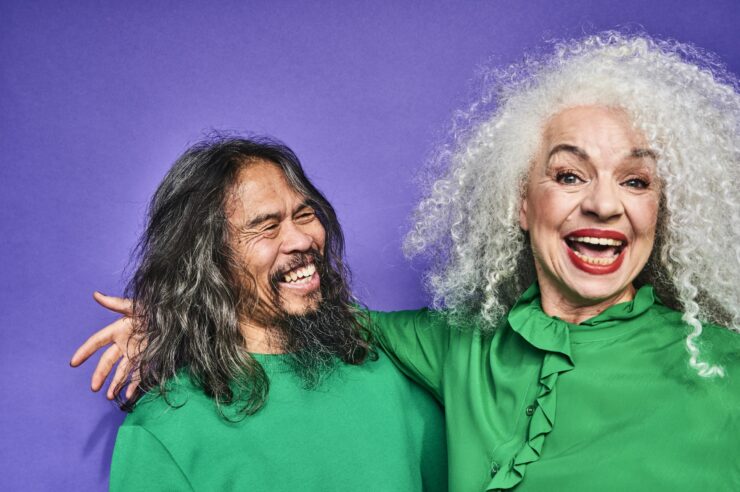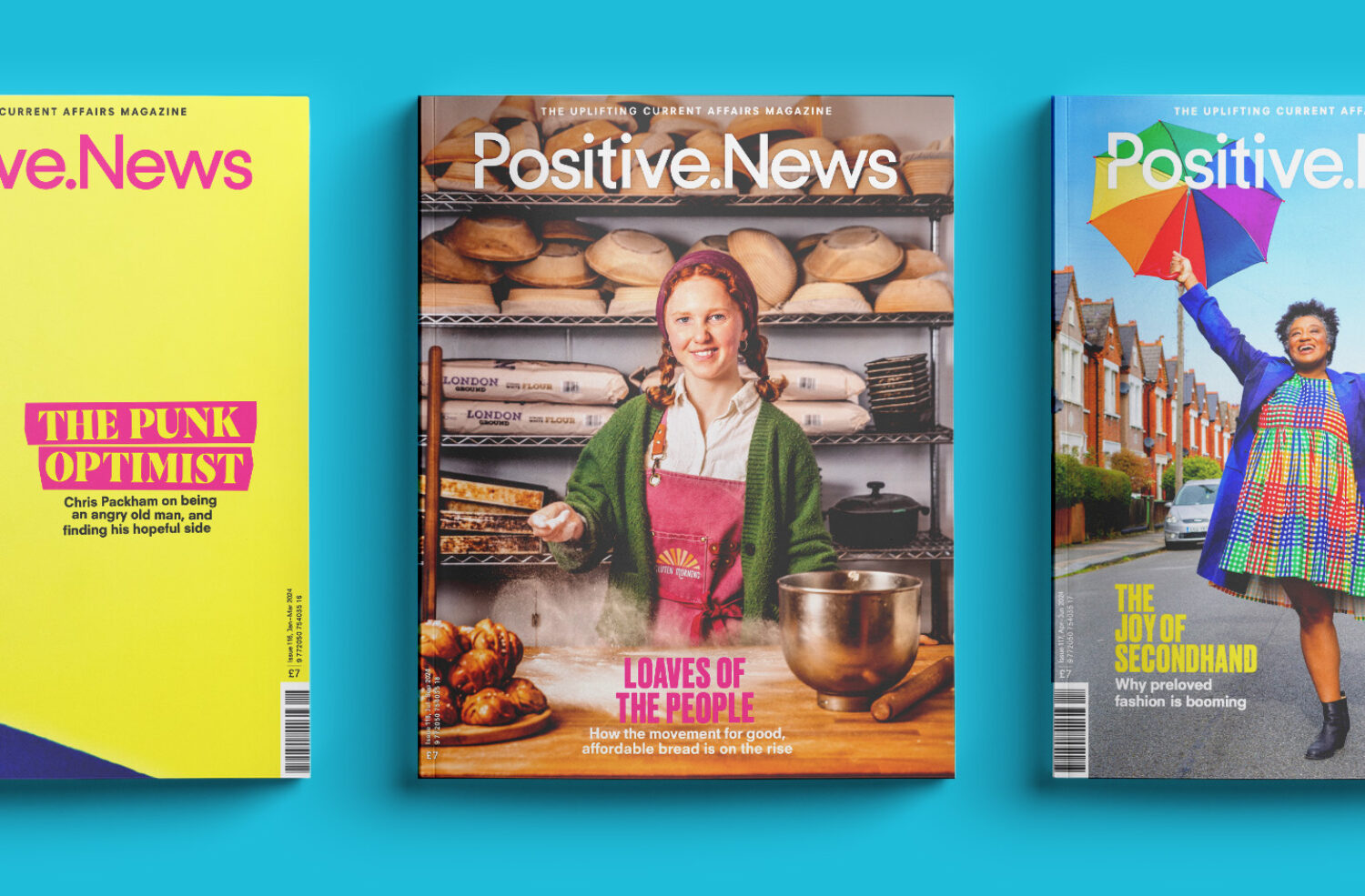It can write songs, essays and stories, and might take your job. Hell, it’s gunning for mine. But no matter how hard it tries, ChatGPT will never be human
What does all this mean? Is what I thought to myself the other night, as I drifted off into an agitated, unsettled sleep.
I was preoccupied with ChatGPT, the new artificial intelligence-powered chatbot that can write poetry, news articles, essays, songs, computer code and much else besides. All you have to do is feed it some instructions and it’ll do the job (albeit to a dubious standard… for now) in the time it takes to ask yourself: “how safe is my career?”
The firm behind it, Open AI, was founded by, among others, the billionaire ‘tech bro’ Elon Musk, who has expressed concerns about the existential risk posed to humanity by AI (but seems to be ploughing on regardless). Would his next space project, I wondered, be powered on the stolen ambitions of poets?
I sought reassurance — and the musician Nick Cave provided some. Cave is the antithesis of the ‘tech bro’. Rather than extracting value from humanity, and offering an ultimately reductive lived experience, Cave does the opposite, adding layers of meaning, mystery and intrigue. I would argue with anyone — or chatbot — that the music he has produced with the Bad Seeds is a near-perfect expression of the human condition.
But I digress. Cave got involved in the ChatGPT debate when a fan sent him lyrics churned out by the software in the style of, yup, Nick Cave.
That’s the kind of thing ChatGPT can do. A similar AI programme, Midjourney, does the same with ‘art’. For the illustration below, I asked it to create a picture of robots serving cocktails to people on sun loungers in the style of Salvador Dali, and this is what is produced. You make up your own minds.
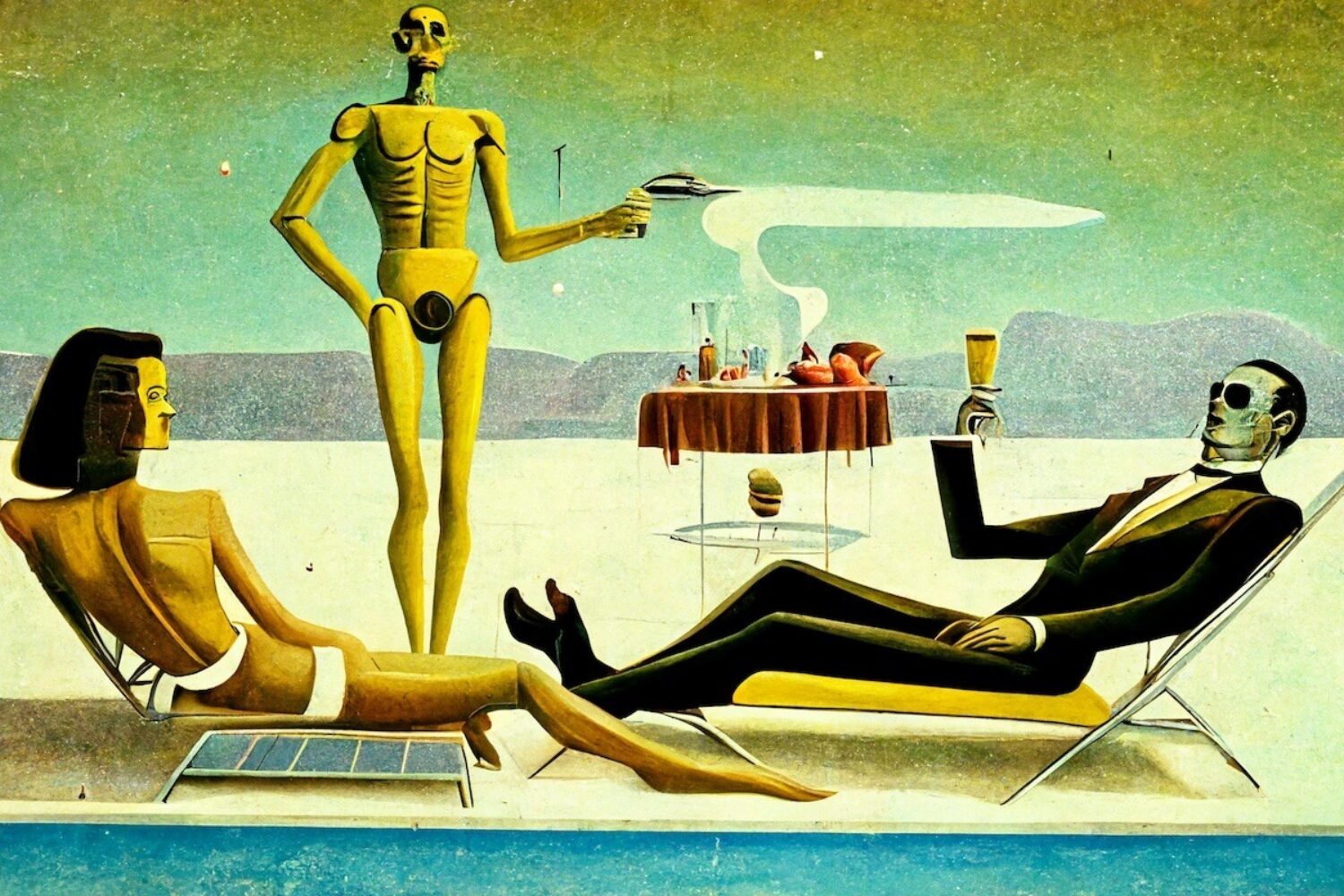
Nick Cave made up his.
“A grotesque mockery of what it is to be human,” he wrote about the song in a post on his Red Hand Files website. “ChatGPT’s melancholy role is that it is destined to imitate and can never have an authentic human experience, no matter how devalued and inconsequential the human experience may in time become.”
Cave is right, of course. AI will simply never know what it means to be human. Which brings us back to my original question? What does all this mean, then?
Nobody really knows. Proponents believe that AI could be a great enabler for humanity. Already it looks likely to emerge as a useful tool for diagnosing cancer and other diseases. Already it is being deployed to save the Amazon rainforest and monitor illegal fishing in protected waters. It also holds great promise for improving conservation methods, tackling overfishing, and even addressing the climate crisis.
Perhaps one day it will relieve us of the drudgery that most jobs seem to come with; an intelligent personal assistant that won’t grumble as we make it sift through spreadsheets and emails. For journalists like me, it could transcribe my notes (it already can), check facts and sort typos, freeing me up to spend more time with my subjects or craft pithy turns of phrase.
Or perhaps ChatGPT will eventually learn to do all that, too, as with a whole host of other jobs, rendering most of us surplus to requirements. We can only hope that in such a scenario, it will be able to work out an acceptable basic income for us to live off, freeing us up to spend more time pursuing uniquely human pleasures.
Reassuringly, the University of Oxford has an entire department dedicated to navigating the ethics of this brave new world — the Institute for Ethics in AI — which provides a welcome counterbalance to Silicon Valley’s move-fast-and-break-things ethos and blithe attitude about where all this is going.
AI will never catch your eye in a bar, or fall in love, or turn heartbreak into poetry
In the meantime, we should probably keep an eye on this emerging tech (for it will be keeping an eye on us). And we should play to our strengths, too, embracing all that is unique, wonderful and flawed about our species. AI will never catch your eye in a bar, or fall in love, or turn heartbreak into poetry. It will not dream. It will never feel spirituality, or a connection to Earth. It will not create family recipes that are passed down through the generations, or whisper a joke in your ear, or wipe a tear from your cheek, or open a bookshop, or start a band, or feel the collective pain of going out the Euros again on penalties. It will not truly understand human connection, community, matters of the heart.
But it looks certain to play an increasing role in our lives as we enter the ‘golden age of AI’. May it be a golden opportunity to celebrate all that is authentically human.
Main image: Eric Krull
Illustration: Produced by Midjourney with help from Daniel Fahey
Help us break the bad news bias
Positive News is helping more people than ever to get a balanced and uplifting view of the world. While the doom and gloom of other news outlets becomes overwhelming, instead we’re here to support your wellbeing and empower you to make a difference towards a better future. And as Positive News’ audience and impact grows, we’re showing the rest of the media that good news matters.
But our solutions journalism has a cost and, as an independent, not-for-profit media organisation, we rely on the financial backing of our readers. If you value what we do and can afford to, please consider making a one-off or regular contribution as a Positive News supporter. From as little as £1 per month, you’ll be directly funding the production and sharing of our stories – helping them to benefit many more people.
Join our community today, and together, we’ll change the news for good.
